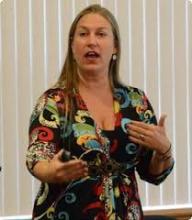Evaluation and Practice: Embedding Curiosity and Skepticism to Reduce Public Harms
The counseling field evolves and incorporates new treatment methods at regular intervals. Evidence based and informed methods have been adopted in many clinical strategies. This can generate mixed results in practice, giving credence to the importance of understanding the limitations of approaches on individuals and the necessity of proper training and application practice when used. There are some approaches to care that are promoted through public health agencies and other popular social networks that have taken root among practitioners and organizations that are not adequately researched or focused on individual outcomes. It is not uncommon for the promise of a practice or approach to be adopted simply due to its “novel” nature or promotion by “authorities” who have a stake in its use. A skeptical and curious counselor will assess treatment strategies through a variety of methods that hold the client’s needs and progress at the center of that equation. This training will explore some of these trends and identify how to practice embedding curiosity and skepticism to ensure better practice and reduce potential harms across the populations served.
Objectives
- Explore how to recognize methods that are not working or are not fit for purpose with individual clients.
- Identify treatment elements that contribute to the inability to assess efficacy.
- Identify and practice strategies informed by skepticism and curiosity, particularly when confronted with promoted practices that are “new” and/or “promising”.
- Discuss ways to hold compassionate yet direct conversations if we find ourselves working in places that advance cookie cutter approaches.
- Explore our limitations to impact individual behavior and the notion we cannot help everyone.
Speakers

Dr. Thompson is the founder and lead clinician at Empower the Mind LLC in Central Pennsylvania. She provides outpatient mental health, SUD treatment, clinical trainings, and consultation for professionals in the field. Since starting her company in 2012 she has helped to grow, develop, and coordinate several community-based prevention programs such as Connected Together – a community violence prevention program providing free mobile trauma therapy to those in need, Breaking the Cycle, Changing the Future – a SUD peer recovery support program for pregnant and postpartum women which includes consultation for the professionals working with this special population, and Lebanon County Student Assistance Program which provides services to six school districts, the career and technology center and runs a free summer camp for county youth. In 2016 Dr. Thompson was elected to join the Board of Directors for the Pennsylvania Certification Board (PCB). Through her involvement with the board, she has helped to develop and implement statewide best practice trainings for peers and professionals credentialled by the PCB and working in programs licensed by the PA Department of Drug and Alcohol Programs (DDAP). Over the last several years she has taught at Harrisburg Area Community College, Alvernia University and Lebanon Valley College. Her passion to help other learn, grow and be well is illustrated through her work daily!